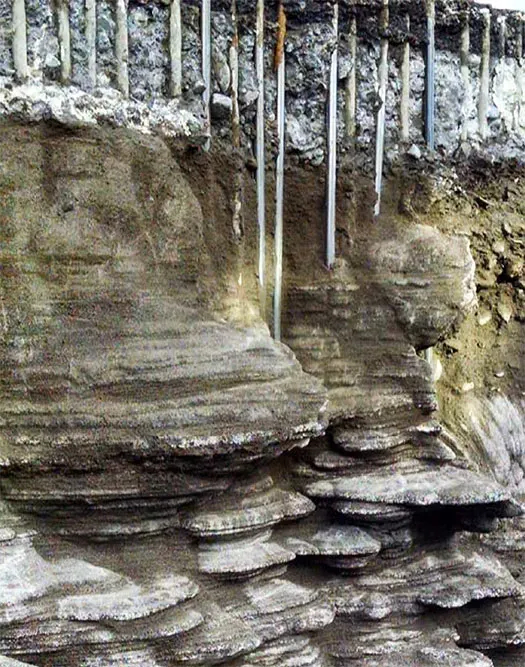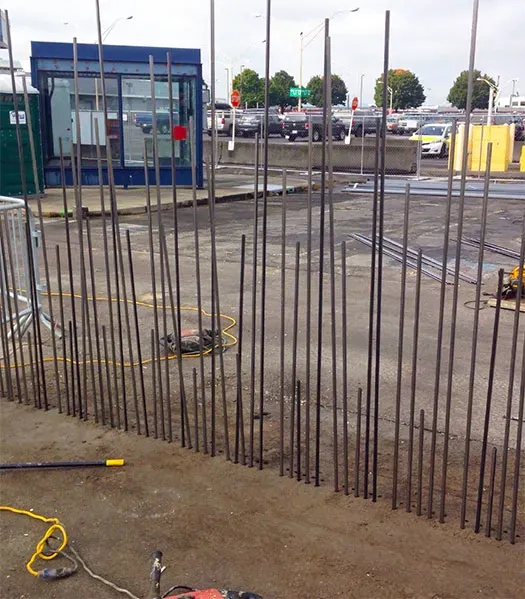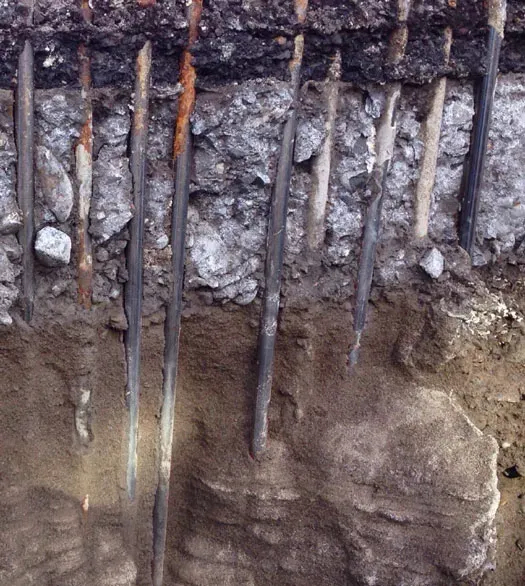Pilot Project: Trenching Support at Portland International Airport
Problem
At Portland International Airport (PDX) in, Portland, Oregon, officials were concerned about the rising costs of shoring work required to protect workers engaged in a number of active trenching projects at the airport. With more work scheduled, airport officials were interested in alternatives to traditional, and costly, shoring practices. A pilot project was initiated to evaluate the possibility of using URETEK Deep Injection® (UDI) instead of traditional shoring methods to support ongoing trenching work at the airport.
Analysis
Working with PDX officials, URETEK obtained a test site within the airport to conduct a pilot project to test its proposed shoring wall technique. URETEK worked with geotechnical firm Rhino-One Engineering to develop the proper injection protocol that would safely and effectively retain the soils away from trenching work areas. URETEK understood that the challenge would be to design a stable wall that would easily stand up to the lateral earth pressure from surrounding soils. With work crew safety a primary consideration, the plan for the shoring wall test was completed and the work began.
Solution
URETEK tested two variations of shoring walls for PDX officials, a 6-foot wall for shallow trench work, and a 12-foot wall for situations that required deeper trenches. The shoring walls were created by injecting a high-density, two-component structural polymer at various injection depths and locations. The depths were selected to allow the expansive polymer to extend from the initial point of injection and interlock with other injection points and depths. This method ensured a complete connection between all injection points and created a solid wall of polymer that could be used for shoring. Special care was taken to ensure that the projected trench work area would be completely free of the injected polyurethane material.
Result
Upon completion of UDI at each test site, normal trenching was conducted to 6-foot and 12-foot depths, according to the test site parameters. After excavation, the polymer shoring wall remained intact. Each site’s wall was examined and tested for irregularities, loose soil pockets, polymer wall thickness, and other factors. Once all tests were completed, engineers determined that the walls at the test sites met all safety requirements for trench shoring. The test project successfully demonstrated the effectiveness of UDI in shoring applications, and PDX officials were pleased to have a shoring option that was comparable in speed, reliability, and safety to traditional shoring methods, at a significantly lower cost.
URETEK Deep Injection® (UDI)
Widely referenced throughout our industry, UDI involves the injection of structural polymer into base and subgrade soils to increase the load bearing capacity. This is achieved by injecting the polymer through small holes drilled directly through the pavement structure to depths determined by site-specific analysis. Our URETEK 486 Star® material flows easily into voids and weak zones within the soil mass below. Through a controlled chemical reaction, the expanding polymer compacts surrounding soils and applies a controlled pressure on targeted areas of the affected pavement above. If needed, a multi-injection design plan is utilized to gently return the pavement to its original grade. The composite material quickly cures into a strong, dimensionally stable, and water-resistant geo-material, providing years of reliable service.
URETEK 486 Star®
URETEK 486 Star® polymer is a two-component, high-density, expanding thermoset polyurethane system. It was developed to be the ideal solution for under-sealing, void filling, lifting of settled pavement, stabilization and stiffening of weak soils, and for encapsulating and sealing buried infrastructure. URETEK 486 Star® is environmentally inert, non-toxic, and resists underground water erosion or weakening due to its industry-leading hydrophobic properties.


